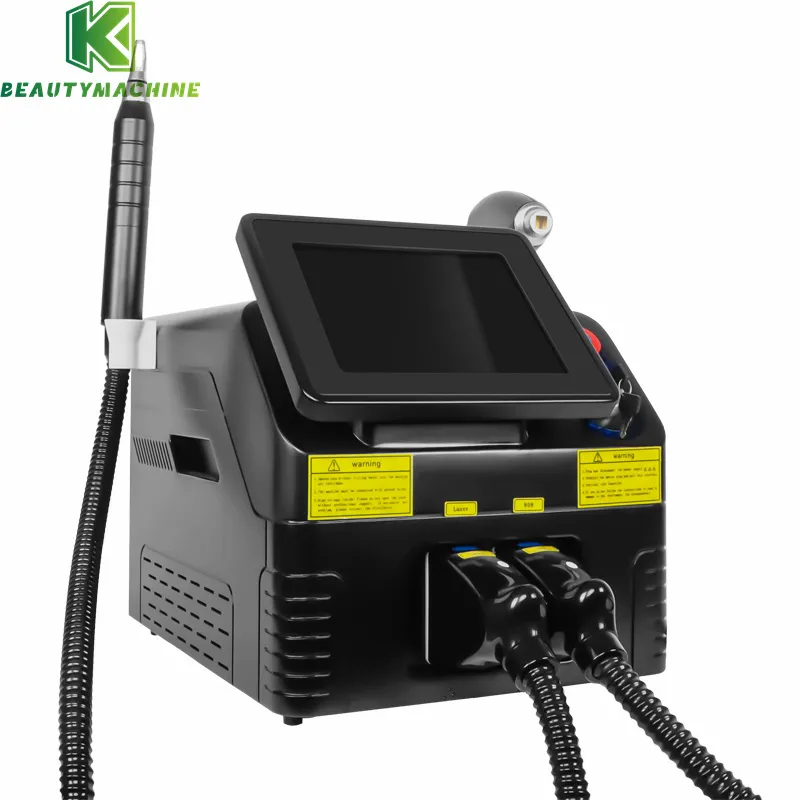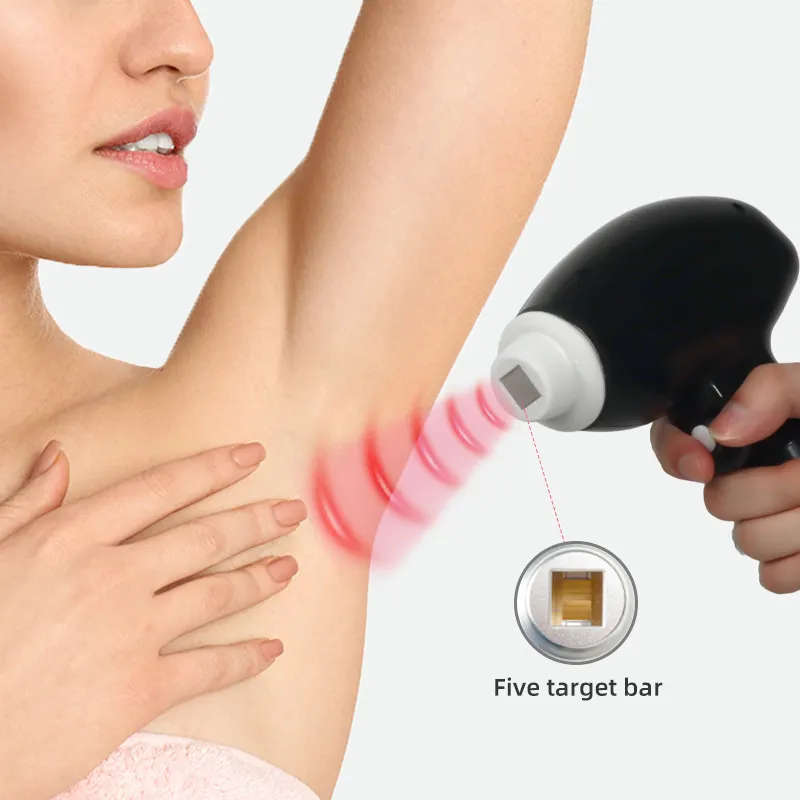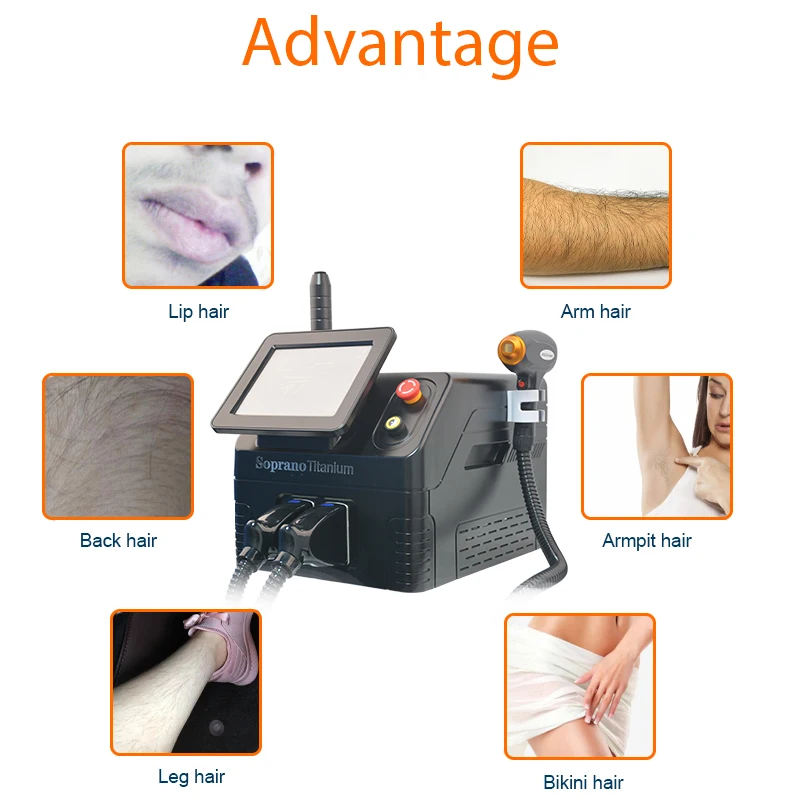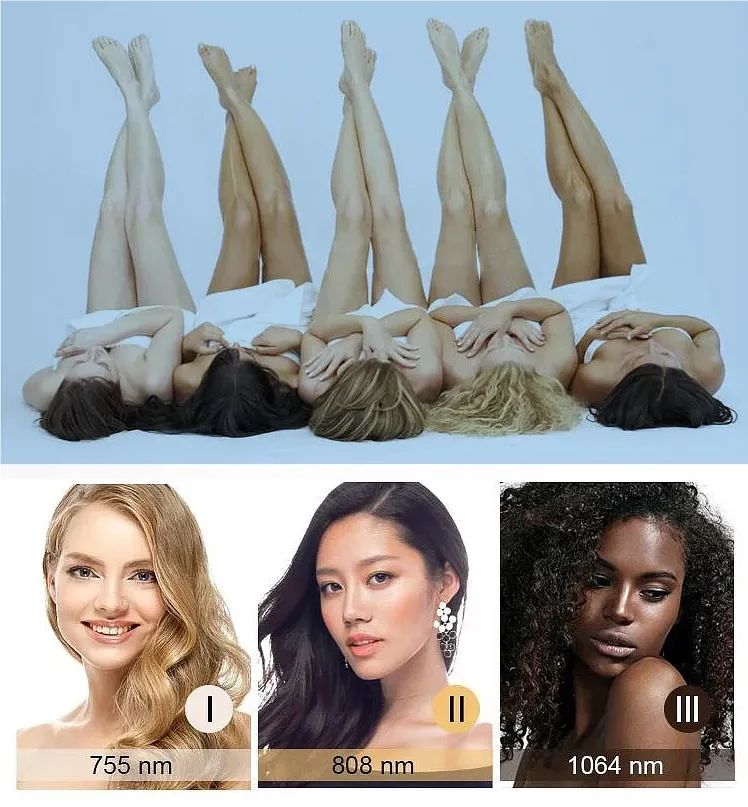
Who is not suitable for laser treatment?
2025-08-25 15:30
Laser technology is widely used in aesthetic medicine, particularly for permanent hair removal. Laser hair removal machines have become an indispensable piece of equipment in medical aesthetics clinics. With its non-invasive, efficient, and highly selective advantages, laser hair removal machines have gradually replaced traditional methods like shaving and waxing, becoming the preferred choice for those seeking smoother skin.
Not everyone is suitable for laser treatment. Ignoring individual differences and blindly using laser hair removal machines can not only lead to ineffective results but also cause side effects such as skin damage and hormonal imbalances.
This article will focus on the topic of "Who is not suitable for laser treatment?" and will thoroughly analyze the contraindications for laser hair removal machines. This systematic analysis will address multiple factors, including physiological conditions, skin type, health status, and medication history. This will help the public develop a scientific and rational understanding of laser hair removal and avoid potential harm from misuse of laser hair removal machines.

How Laser Hair Removal Machines Work
Before discussing the indications and contraindications for laser treatment, it is important to first understand the basic working principles of laser hair removal machines.
1. Technical Principle
Laser hair removal machines rely on the principle of selective photothermal therapy, irradiating the skin with laser light of a specific wavelength. This causes melanin in hair follicles to absorb the light energy and convert it into heat, thereby destroying the follicle structure and inhibiting hair regrowth.
• Common wavelengths: 755nm (Alexandrite), 808nm (diode), 1064nm (Nd:YAG);
• Energy output: Depends on skin type, hair density, and color;
• Target structure: Melanocytes in hair follicles.
2. Devices
Laser hair removal machines are divided into medical-grade and home-use devices. Medical-grade devices require professional qualification and are performed by a doctor or technician. While home-use devices offer lower energy and are easier to operate, they have weaker risk control mechanisms and require a higher level of skin knowledge.

Who is not suitable for laser treatment?
Although laser hair removal machines are widely used, their strong reliance on heat energy and melanin makes some people unsuitable for this treatment. The following analyzes these factors.
1. Pregnant and breastfeeding women
Reasons:
• Hormone levels fluctuate dramatically during pregnancy and breastfeeding, which can lead to abnormal hair growth and unstable response to laser treatment.
• Currently, there is insufficient scientific evidence to prove that laser hair removal machines have no effect on the fetus or breast milk.
• Furthermore, the skin's sensitivity to heat increases during pregnancy, making it more susceptible to side effects such as burns or erythema.
Professional Advice:
• For the safety of both mother and child, pregnant and breastfeeding women should avoid using laser hair removal machines and postpone treatment until at least three months after the end of breastfeeding.
2. Patients with skin allergies or active skin diseases
Including:
• Eczema, psoriasis, urticaria;
• Contact dermatitis, skin infections (bacterial, viral, fungal);
• Active and severe acne.
Mechanism of Harm:
• The laser hair removal machine generates heat during irradiation, which may aggravate skin inflammation, leading to the spread of lesions, worsening infection, and even causing severe skin damage or scarring.
Treatment Recommendations:
• After the skin disease has resolved or healed, a professional dermatologist should assess whether laser hair removal treatment is appropriate.
3. Patients with Pigmentary Skin Diseases
Includes:
• Vitiligo;
• Melasma;
• Melanosis, etc.
Risk Analysis:
Laser hair removal machines work by selectively absorbing melanin. If used on patients with abnormal pigment metabolism, this may result in:
• Further pigment loss;
• Enlarged or uneven pigmentation;
• Inconsistent skin color, resulting in a "mottled" appearance.
Therefore, these individuals are at high risk for using laser hair removal machines and should be strictly contraindicated.
4. People with Dark Skin (Fitzpatrick Types IV-VI)
Reason Analysis:
• People with dark skin have a high melanin content in their epidermis, which may lead to excessive absorption of laser energy before reaching the hair follicles.
• Highly susceptible to epidermal burns, blisters, hyperpigmentation, or hypopigmentation.
Special Note:
• Although the 1064nm Nd:YAG laser is relatively safe for darker skin tones, the use of a laser hair removal machine still requires precise adjustment by a professional based on skin tone. Home use of laser hair removal machines is not recommended for darker skin tones.

5. Individuals with scar tissue
Characteristics:
• Individuals with scar tissue are prone to developing noticeable hypertrophic scars or keloids after minor skin injuries.
Risk Mechanism:
• The thermal stimulation of a laser hair removal machine may cause micro-injury. Even without surface trauma, the destruction of subcutaneous hair follicles may trigger a scarring reaction.
Recommendation:
• Individuals with scar tissue should avoid using a laser hair removal machine for any surface treatments, including hair removal and peels.
6. Individuals with recent tanning or sun exposure
Reasons:
• Sun exposure or tanning increases skin melanin;
• Using a laser hair removal machine before the skin barrier function has recovered after sun exposure can easily lead to erythema, burns, blisters, or pigmentation disorders.
Recommendation:
• Wait at least 2-4 weeks after sun exposure, allowing your skin tone to stabilize, before evaluating whether you are suitable for laser hair removal.
7. Those currently taking photosensitizing medications
These medications include:
• Antibiotics (tetracyclines, quinolones);
• Oral A acid (isotretinoin);
• Certain anti-epileptic drugs and diuretics;
• Certain antidepressants.
Cause Analysis:
• Photosensitive medications can increase the skin's reaction to lasers, leading to burns, blisters, increased erythema, or long-term pigmentation abnormalities.
Recommendation:
• Discontinue the relevant medication for at least 4-6 weeks before considering laser hair removal treatment, and have your skin photosensitivity assessed by a doctor.
8. Those with immune dysfunction or currently receiving immunosuppressive therapy
These include:
• HIV infection;
• Post-organ transplant recipients taking immunosuppressive medications;
• Patients with autoimmune diseases (such as systemic lupus erythematosus).
Reason:
• These individuals have reduced skin repair capacity, and using a laser hair removal machine may result in complications such as delayed healing, infection, and pigmentation disorders.

Special Populations (Careful Assessment Required)
1. Children and Adolescents
Although laser hair removal has become increasingly popular among adolescents, their endocrine systems are not fully developed, and hair growth is unstable. Therefore, the effectiveness of using a laser hair removal machine is uncertain, and the potential risks are higher.
It is recommended that patients aged 16 and above undergo the procedure accompanied by a parent and under the guidance of a physician.
2. Diabetics
Diabetes patients have poor peripheral circulation and reduced skin repair capacity. If infection or micro-injury occurs after using a laser hair removal machine, healing may be difficult and may even lead to localized tissue necrosis.
Essential Pre-Use Screening Steps for Laser Hair Removal Machines
To minimize the potential risks associated with using a laser hair removal machine, professional institutions should rigorously implement the following assessment steps:
• Determine skin type (Fitzpatrick classification);
• Medical history: any history of chronic medical conditions, hormonal disorders, or pigmentary abnormalities;
• Review of medication use;
• Verify recent sun exposure history;
• Patch testing and small-area trial photography;
• Scar predisposition assessment;
• Signed informed consent and photographic documentation.
Assess your physical condition appropriately and use the laser hair removal machine scientifically
The laser hair removal machine is an advanced and highly effective medical cosmetic device. Properly used, it can help most people achieve safe and long-lasting hair removal results. However, it is important to understand that it is not suitable for everyone.
Any hair removal procedure should be based on skin safety and individual differences. Before using a laser hair removal machine, it is essential to conduct a thorough assessment and follow professional advice to select the appropriate wavelength, dosage, and device to avoid irreversible skin damage caused by ignoring contraindications.
Does KuoHai offer discounts for bulk purchasing and wholesale?
Yes, KuoHai provides special discounts and promotions for large orders. As a direct manufacturer and factory supplier in China, we support wholesale sales, customized branding, and affordable OEM services. Buyers looking to purchase beauty machines or home appliances in bulk can receive low prices, factory quotes, and reliable supply schedules.
Get the latest price? We'll respond as soon as possible(within 12 hours)







